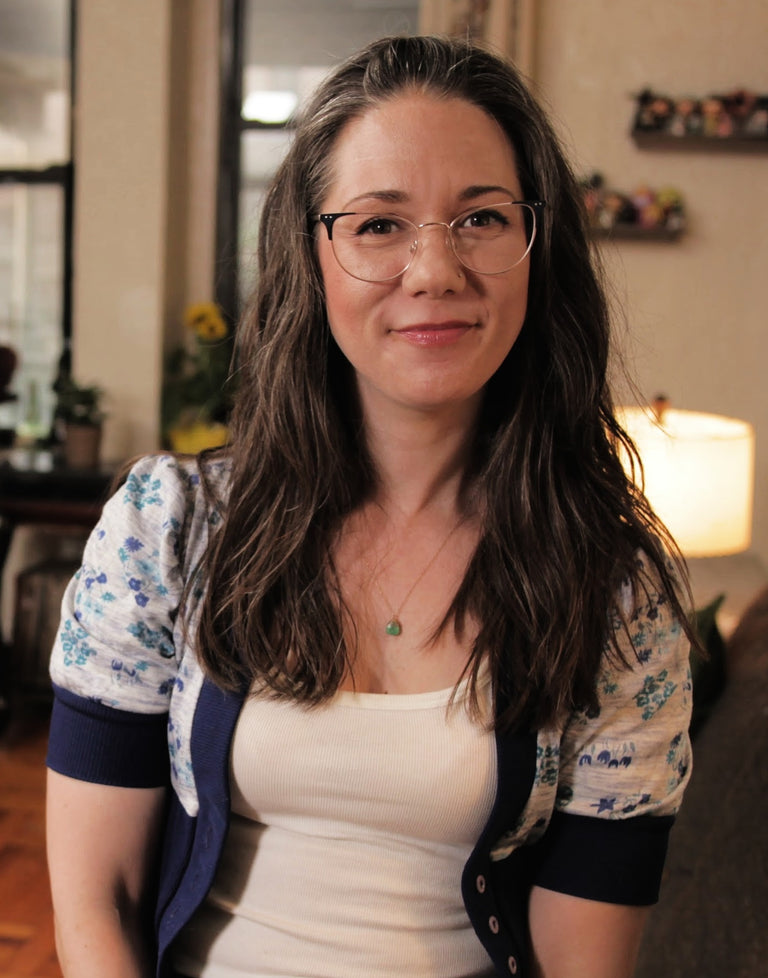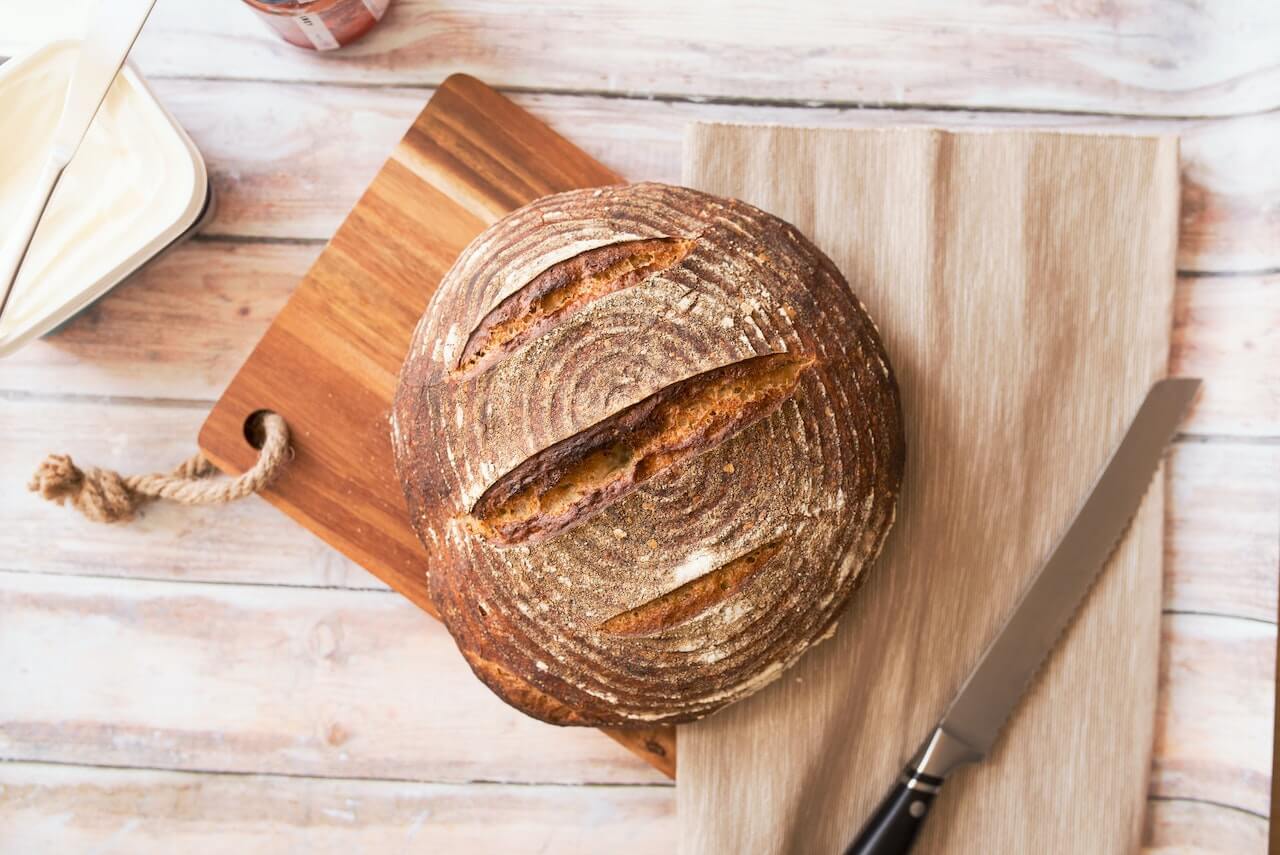Iron is a vitally important mineral for our general health and well-being that is heavily relied upon for many different bodily functions. It's also one of the most common nutritional deficiencies for women. Unfortunately, iron deficiency is thought to be one of the factors that can cause hair loss.
Read on to find out more about why iron is so important to our health, how iron deficiency and hair loss are related and what you should do to combat thinning hair ASAP.
#include-related-slider#
Why Iron Is So Important
Iron is a mineral your body can absorb from protein-rich foods. It’s essential for the production of hemoglobin, a protein molecule in red blood cells. Hemoglobin, in turn, is essential for transporting oxygen throughout the body.
“Red blood cells contain a protein called hemoglobin that holds an iron atom in its center. Oxygen binds to the iron atom. This is how oxygen is carried through the blood and supplied to all the tissues in the body, including hair follicles,” explained Dr. Leann Poston, a medical doctor and advisor at Invigor Medical.
Our bodies shore up supplies of iron by storing a reserve in our muscles, liver, spleen and bone marrow. If you’re iron deficient — meaning you aren’t taking in enough iron from your diet— your body will use its iron reserves in the short term. But when levels of iron stored in the body become low, iron deficiency anemia sets in.
Anemia is a condition that happens when there aren’t enough red blood cells available to carry oxygen throughout the body. While anemia can be caused by low iron levels, it can also be caused by vitamin deficiencies or other illnesses.
So when there isn’t enough iron in your bloodstream, red blood cells become smaller and contain less hemoglobin. Without enough hemoglobin, your body can’t get the amount of oxygen it needs.
Read: What Causes Hair Loss? Every Trigger Explained
What Causes Iron Deficiency and Anemia?
Often, the blood women lose during their periods is the main contributing factor for iron deficiency, but other causes can include:
- Celiac disease
- Non-celiac gluten intolerance
- Inflammatory bowel disease
- Vegetarian or vegan diets
- Hypothyroidism (low thyroid)
- Pregnancy and childbirth
- Gastrointestinal blood loss
Related: Hair Loss and Thyroid Disorders — What You Need To Know
What Happens When the Body's Iron Levels Are Low?
When iron stores run low, your body starts to prioritize how the limited supply will be used. Using iron to keep vital organs like our brain and heart properly oxygenated will take priority over other less important bodily functions.
“Whenever the body senses that it is not at its healthy baseline, it will terminate production of what it deems nonessentials, like hair and nails, for example, in order to preserve nutrients and energy for the more vital organs,” explained Dr. Susan Bard, board-certified dermatologist at Vive Dermatology.
This is why you might notice increased hair shedding or more brittle nails if you have iron deficiency anemia. People with iron deficiency anemia are less able to fight off germs and infections, work and exercise and control their body temperature.
Some other common symptoms of iron deficiency anemia include:
- Fatigue
- Headaches
- Pale skin
- Weakness or dizziness
- Shortness of breath
- Difficulty concentrating
- Memory issues
Related: How Much Hair Loss Is Normal?
Iron Deficiency, Anemia and Hair Loss
To date, the relationship between hair loss and low iron isn’t deeply understood. Studies have shown a link between the two, though more research will be needed to understand the connection better.
We do know that oxygen plays an important role in the growth and repair of all cells in the body, including the cells produced in our follicles that eventually become strands of hair. “It makes intuitive sense that a deficiency of iron and a decreased supply of oxygen to nonvital tissues such as hair follicles would lead to hair loss,” said Dr. Poston.
Also, ferritin, the form of iron that is stored in the body, is found in hair follicles. It’s believed that when the body runs low on stored iron (ferritin), it might borrow supplies from hair follicles, which can also contribute to hair loss. Research shows that ferritin levels were much lower in premenopausal women experiencing female pattern baldness, aka female pattern hair loss, than in their healthy counterparts.
Though iron deficiency anemia is much more common in premenopausal women through menstrual blood loss, research show that low iron can also cause diffuse hair loss, like telogen effluvium, in postmenopausal women and nonmenopausal women too. There might also be a link between telogen effluvium and low iron in premenopausal women.
Read: What Is Telogen Effluvium?
How Much Ferritin Is Normal?
So how much ferritin is normal? According to Johns Hopkins Medicine, a normal range for blood ferritin for women varies by age:
- Women 18-39: 10-120 ng/mL
- Women 40 and above: 12-263 ng/mL
However, the lower the ferritin level in your blood, even if it's in the normal range for your age, the more chance you may not have enough iron.
How Much Ferritin Do Women Need for Healthy Hair Growth?
There isn’t a lot of research looking at what iron levels are optimal for hair growth, though we do have some evidence suggesting levels that qualify as too low. One study showed that blood ferritin levels of less than 30 ng/mL were strongly associated with telogen effluvium.
See: How to Grow Your Hair Out Faster
Consult With Your Doctor
If you’re experiencing hair loss and you think it might be caused by low ferritin, or if you’ve noticed any of the symptoms associated with an iron deficiency, it’s time to see a doctor. A few simple blood tests are all it takes and will likely include tests for your complete blood count (CBC), serum iron, total iron-binding capacity (TIBC) and serum ferritin concentration.
If your doctor determines through a ferritin test that you're dealing with iron deficiency hair loss, the good news is that it’s not permanent. Plus, the way to stimulate hair growth could be as simple as upping your iron intake.
Getting Back Healthy Hair Regrowth
“Replenishing the iron stores and getting the body back to its baseline should restart the growth of hair,” said Dr. Bard. Here are some ways to up your iron intake to treat hair loss.
Also: Vegan Foods With Biotin for Healthy Hair
Eat a Balanced Diet
The best way to replenish iron stores in your body is through a balanced diet. Nonmenopausal women need 8 mg of iron per day, while for women between the ages of 19 and 50, the recommended daily intake is 18 mg. Pregnant women should be getting 27 mg of iron daily. Note that if you’re vegetarian or vegan, you should be aiming to get about double these recommended daily values through your diet because iron from vegan sources is only absorbed about half as well as iron from non-vegan sources.
Depending on the food source and the type of iron, absorption varies quite a lot. It can be hard for the body to absorb iron properly. Adding foods high in vitamin C to your diet, like oranges, strawberries, melons, broccoli and tomatoes, may help boost iron absorption.
Some foods that are good sources of iron include:
- Whole grains
- Nuts
- Dark leafy green vegetables like spinach and kale
- Dry fruits like raisins
- Legumes like soybeans and lentils
- Beans like red kidney or chickpeas
See Also: The 16 Best Foods to Grow Your Healthiest Hair Ever
Consider Supplements
You can also add iron supplements (pills or liquid) to your routine if you’re finding it hard to get enough iron from food. Just keep in mind that too much iron can be dangerous, so you need to consult with your doctor about the right dosage and frequency for you. Iron overload and iron poisoning are very real. And, of course, always discuss supplements with your primary care physician first.
Aside from iron-rich foods, consider supplementing your diet with vitamins and minerals known to support healthy hair like vitamins A and D, folic acid, zinc and biotin such as GRO Biotin Gummies.
Give Your Tresses Some TLC
And last, but not least, be kind to your scalp and all those strands! Be gentle while brushing and washing to avoid pulling out any excess hair during routine maintenance. And steer clear of chemical treatments and extreme heat from hair dryers or straighteners to help keep hair damage at bay.
The Final Takeaway
Low iron and anemia can lead to hair loss. And while iron deficiency and anemia might be to blame for your hair loss, you’ll need to consult with a doctor before taking iron supplements or making other significant changes to your lifestyle.
Hair loss caused by low iron will likely require an increased iron intake, but remember that a holistic approach to health, including stress management, exercise and regular sleep, can also have positive effects on your hair and might even help to prevent future hair loss. Finally, be patient! Wait at least three months to give any iron supplement you're taking or dietary changes a chance to work.
#include-related-slider#
More From VEGAMOUR
- Shop: Heather Poppie's VEGAMOUR Picks
- 5 Benefits of Scalp Massages Including Hair Growth
- Top VEGAMOUR Picks for Men
Photo credit: Vlada Karpovich/Pexels
Back


















